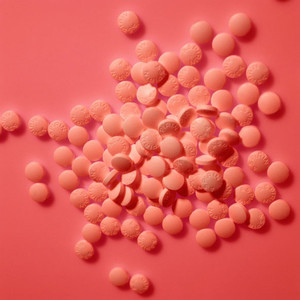On 19 January 2012, Sandoz, the generic drug division of Swiss drug giant Novartis AG, announced that it had started two phase III clinical trials, one for biosimilar filgrastim (Amgen’s Neupogen) for the US market and the other for its global pegfilgrastim (Amgen’s Neulasta) development programme.
Sandoz starts phase III trials for biosimilar filgrastim and pegfilgrastim
Biosimilars/News
|
Posted 27/01/2012
 0
Post your comment
0
Post your comment

The filgrastim study will evaluate the efficacy and safety of Sandoz’s biosimilar filgrastim versus Amgen’s Neupogen in breast cancer patients eligible for myelosuppressive chemotherapy treatment. It is expected to support extension of commercialisation to the US, the largest global market for biologicals.
Neupogen lost its patent protection in the EU in 2008. Sandoz’s filgrastim biosimilar was approved in the EU in February 2009 for the same indications as Neupogen [1] and is marketed under the brand name Zarzio in more than 30 countries outside the US. Neupogen will lose its patent protection in the US in 2013 [2].
The pegfilgrastim study is being conducted in breast cancer patients undergoing myelosuppressive chemotherapy treatment, and according to Novartis’ press statement, ‘represents the next major step in the Sandoz global biosimilar development program[me].’
Filgrastim is a growth factor used to aid the recovery of bone marrow after chemotherapy treatment for cancer. Especially in patients with neutropenia (low white blood cell count in the blood), causing a weakening of the immune system.
Pegfilgrastim is a longer-acting version of Neupogen, requiring less-frequent injections, and is thus significantly more expensive and lucrative for Amgen. The patents on Neulasta will expire in 2015 in both Europe (August) and the US (October).
‘Sandoz is already the clear global leader in biosimilars overall and in each of our three marketed products, with approximately 50% total segment share in the highly regulated markets of North America, Europe, Japan and Australia’, said Sandoz’s global head, Mr Jeff George.
In addition to Zarzio, Sandoz markets biosimilar somatropin (Omnitrope) and epoetin alfa (Binocrit) in countries across Europe and elsewhere. Omnitrope is also marketed in the US, under a different approval pathway.
Sandoz is also currently conducting a phase II clinical trial for a biosimilar version of Roche’s leading monoclonal antibody Rituxan/MabThera (rituximab) [2].
Sandoz is the only biosimilars manufacturer to have more than two biosimilars on the market, and with 8–10 molecules at various stages of development [3].
Neupogen and Neulasta had combined US sales of US$4.84 billion in 2010 [2]. With sales figures of this size it is not surprising that biosimilars manufacturers are lining up to be ready with their biosimilars once the market opens to competition.
Related article
Top developments in biosimilars during 2011
References
1. GaBI Online - Generics and Biosimilars Initiative. Development of a new biosimilar filgrastim product (Zarzio) [www.gabionline.net]. Mol, Belgium: Pro Pharma Communications International; [cited 2012 January 27]. Available from: www.gabionline.net/Biosimilars/News/Development-of-a-new-biosimilar-filgrastim-product-Zarzio
2. GaBI Online - Generics and Biosimilars Initiative. Sandoz announces biosimilar rituximab [www.gabionline.net]. Mol, Belgium: Pro Pharma Communications International; [cited 2012 January 27]. Available from: www.gabionline.net/Biosimilars/News/Sandoz-announces-biosimilar-rituximab
3. GaBI Online - Generics and Biosimilars Initiative. Sandoz announces biosimilar rituximab [www.gabionline.net]. Mol, Belgium: Pro Pharma Communications International; [cited 2012 January 27]. Available from: www.gabionline.net/Biosimilars/News/Sandoz-announces-biosimilar-rituximab
Source: Novartis
Research
Reaching ESG goals in pharmaceutical development
What is the future for the US biosimilar interchangeability designation
General
Samsung Bioepis wins Pyzchiva case; Regeneron patent rulings threaten foreign biosimilars
Chinese biosimilars go global: growth, partnerships, and challenges
Most viewed articles
The best selling biotechnology drugs of 2008: the next biosimilars targets
Global biosimilars guideline development – EGA’s perspective
Related content
FDA approves Poherdy (first interchangeable pertuzumab) and Armlupeg (pegfilgrastim) biosimilars
EMA recommends approval for insulin glargine biosimilar Ondibta and denosumab biosimilar Osqay
FDA approves denosumab biosimilars Osvyrti and Jubereq, Boncresa and Oziltus
FDA approves aflibercept biosimilar Eydenzelt and label expansion for adalimumab biosimilar Yuflyma
FDA approves Poherdy (first interchangeable pertuzumab) and Armlupeg (pegfilgrastim) biosimilars

Biosimilars/News Posted 27/01/2026
EMA recommends approval for insulin glargine biosimilar Ondibta and denosumab biosimilar Osqay

Biosimilars/News Posted 16/01/2026
FDA approves denosumab biosimilars Osvyrti and Jubereq, Boncresa and Oziltus

Biosimilars/News Posted 07/01/2026
FDA approves aflibercept biosimilar Eydenzelt and label expansion for adalimumab biosimilar Yuflyma

Biosimilars/News Posted 05/12/2025
The best selling biotechnology drugs of 2008: the next biosimilars targets






Post your comment